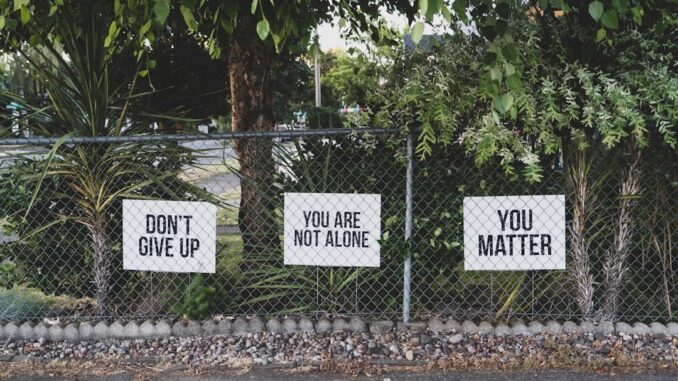
Summary
This article provides a comprehensive guide to navigating addiction recovery, focusing on sober living homes and support groups. It offers practical advice for finding the right resources and maintaining long-term sobriety. Discover how to build a strong support system and create a fulfilling life free from substance abuse.
** Main Story**
Alright, let’s talk about building a solid recovery. It’s not just about stopping, but about creating a life where you want to stay stopped. It’s a journey, not a sprint. So, where do you start?
Stepping Stones: Sober Living
Sober living homes can be a fantastic transition point from intense treatment back into the real world. Think of it as a halfway house, but with more emphasis on community and building a sustainable sober lifestyle. They’re safe, substance-free environments where you can really focus on setting yourself up for success. The level of support varies, I mean you’ve got everything from peer-run places to ones with clinical staff, so picking the right fit for you is key. It’s not a permanent solution, but a stepping stone, and its about gently easing you back into everyday life while keeping your sobriety front and center.
Different Strokes for Different Folks: Types of Sober Living
- Level 1: Resident-run, all about peer support and shared responsibility. A true community effort.
- Level 2: At least one paid staff member is there, offering monitoring and guidance. It’s like having a supportive supervisor.
- Level 3: Certified professionals on staff, providing even more supervision and support. For some, this higher level of care is really needed.
- Level 4: Clinical and administrative supervision from credentialed staff. This is the highest level of structure and support available. It can be costly, but effective.
Why Choose Sober Living?
- Stability: A safe, clean, and stable place to live. It really helps to have that peace of mind, you know?
- Accountability: Rules and guidelines to keep you on track. Because sometimes, we need that extra push to stay focused.
- Community: A built-in support system, less isolating than going it alone. After all, recovery is rarely a solo act.
- Structure: Establishing healthy routines and responsibility. It’s amazing how much a routine can do for your mental well-being, it’s like a solid base to build from.
- Support Services: Access to counseling, peer support, and resources. Everything you need, right at your fingertips. One thing that helped me was finding a good therapist who had experience with addiction, it was invaluable.
Connecting with Others: Support Groups
Next up, support groups. Honestly, they can be a lifeline. Hearing from others who get it, who understand the daily struggles, is incredibly validating. It’s a safe space to share, vent, and pick up coping strategies. Finding the right group is paramount, if you ask me. Try a few different types and see which one clicks.
Finding Your Tribe: Types of Support Groups
- 12-Step Programs: AA, NA, and the like. Spiritual approach, widely available. Though I’m not a particularly spiritual person, the structure can be helpful.
- SMART Recovery: Science-based, focusing on self-management and coping skills. Some find the tools based nature of SMART really suits them. I think it depends on what you’re looking for from the experience.
- Other Support Groups: Specialized groups for specific substances, demographics, or co-occurring disorders. Don’t forget family support groups like Al-Anon and Nar-Anon, which are essential for the loved ones of people battling addiction. It can be a difficult journey for them, too.
What’s the Payoff? Benefits of Support Groups
- Shared Experiences: Knowing you’re not alone in this fight. That’s huge, especially in the early days.
- Emotional Support: Encouragement and validation from people who understand. A little bit of encouragement can go a long way.
- Practical Guidance: Learning coping skills and strategies. Stuff you can actually use in your day-to-day life.
- Accountability: Staying committed through mutual support. We’re all in this together.
- Hope: Hearing success stories. Knowing that long-term recovery is within reach. Is that not the ultimate goal?
Building Your Fortress: A Strong Support System
Let’s be real, recovery is a marathon, not a sprint. You’ll need a solid support system to keep you going. Family, friends, therapists, sponsors, support group members – surround yourself with positive influences, you know? Be open about your needs. Don’t be afraid to ask for help; it’s a sign of strength, not weakness.
Tips for Reinforcements
- Lean on loved ones: Share your journey, be vulnerable. They want to help, but they need to know what’s going on.
- Engage with your therapist: Work through underlying issues, develop coping mechanisms. It’s an investment in your future.
- Find a sponsor or mentor: Someone who’s been there, done that, and can offer guidance. They’ve walked the path before you.
- Attend support group meetings regularly: Stay connected, build community. It’s more than just a meeting; it’s a lifeline.
- Practice self-care: Prioritize your well-being. Exercise, eat well, meditate, do whatever makes you feel good (besides using, of course!). I’m a big fan of hiking; it’s great for clearing my head.
Toolkit for Life: Healthy Coping Mechanisms
Often, addiction is a symptom of unhealthy coping mechanisms. It’s about finding better ways to deal with stress, trauma, or just plain old bad days. Therapy, mindfulness, stress management techniques, hobbies – build a toolbox of healthy strategies so you can handle whatever life throws your way without turning to substances. And trust me, life will throw things!
Navigating the Storm: Relapse and Commitment
Look, relapse happens. It’s not a sign of failure, but a temporary setback. If it does happen, reach out for support immediately and recommit to your plan. Learn from the experience, adjust your strategies. Recovery is a process, not perfection. So don’t beat yourself up about it, get back on track. Recovery is possible, and with continued effort and support, a fulfilling, sober life is definitely within your grasp.


Be the first to comment